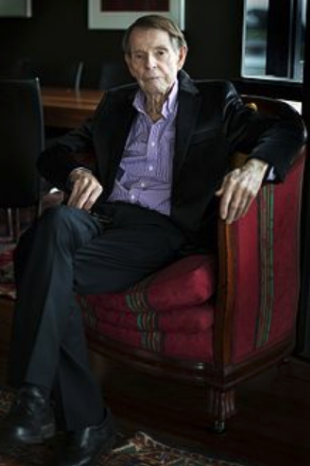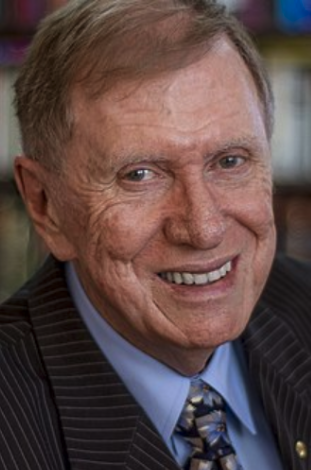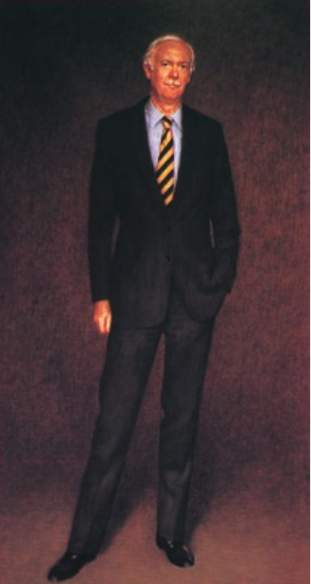AAHBL Honorary Membership Policy
At the November 2012 AABHL committee meeting, it was agreed to invite eminent people who are currently not members but whom we believe would add value to the AABHL, to be Honorary Members, with the intention that we can call upon them for advice and wisdom but cannot prevail on their time or energy. Limited term of appointment: 5 years, renewable.
The role of honorary members
Honorary membership is bestowed by AABHL on eminent scholars and researchers who have made a significant contribution to scholarship in health law and ethics over many years. They may be a past member of AABHL, ABA or ANZIHLE, but that is not a requirement.
We assume that they will keep an interested eye on what the AABHL is doing, including our conference programs, our ‘streams’, and our local events, and will read the JBI, so that they will be sufficiently aware of our activities to mention what the AABHL is doing to interested persons or in an address they might make to an interested group. They could be invited, but not expected, to present a plenary lecture at a conference from time to time.
The benefits of honorary membership
Honorary members receive correspondence circulated to members, member access to the webpage including access to presentations from conferences, and a hard and an electronic copy of the JBI – in addition to knowing that they have been recognised by a peak body as being worthy of such recognition. Other benefits may be offered in the future.
Emeritus Professor Max Charlesworth AO
philosopher, has had a longstanding and distinguished involvement in bioethics. He was one of the founding members of the Australian Bioethics Association (ABA), one of the two leading Australasian professional organizations concerned with bioethical issues, the other being the Australian and New Zealand Institute of Health Law and Ethics (ANZIHLE). In 2009, the ABA and ANZIHLE amalgamated to form Australasian Association of Bioethics and Health Law (AABHL). Max lists amongst his most relevant recent publications in bioethics “Life, Death, Genes and Ethics: Biotechnology and Bioethics” 1989 Boyer Lectures, ABC Books, and “Bioethics in a Liberal Society”, Cambridge University Press, 1993
Click here to view a biography of Professor Charlesworth, written by Douglas Kirsner and published in 2012.
The AABHL sadly notes the death of Professor Charlesworth in June 2014.

The Hon Michael Kirby AC CMG
Michael Kirby was a Justice of the High Court of Australia 1996-2009. Before that he served as president of the NSW Court of Appeal, president of the Court of Appeal of Solomon Islands, Judge of the Federal Court of Australia and deputy president of the Australian Conciliation and Arbitration Commission. Between 1975-84 he was inaugural chairman of the Australian Law Reform Commission. In that post he was engaged in several activities relevant to bioethics. These included the highly successful report of the commission (1977) on the law on Human Tissue Transplants (ALRC 7). He helped to establish the credentials of the ALRC for dealing with significant bioethical questions.
Between 1988-1992, Michael Kirby served on the inaugural Global Commission on AIDS of the World Health Organisation. This opened up later, and continuing, involvement in the international response to the HIV epidemic. Between 2010-2012 he served as a commissioner of the UNDP Global Commission on HIV and the Law. Since 2000 he has served on the UNAIDS reference group on HIV and human rights. In Australia, since 2009, he has served on the executive of the Pacific Friends of the Global Fund. Partly in recognition of his activities in the field of HIV/AIDS, the University of New South Wales named its Institute on Viral Diseases, the Kirby Institute. Monash University has named its Centre for Health and Human Rights after him.

Between 1996-2005, Michael Kirby served as a member of the UNESCO International Bioethics Committee. In that capacity he chaired the group that drafted the Universal Declaration on Bioethics and Human Rights. That declaration was adopted unanimously by the General Conference of UNESCO. It aimed to harmonise the approaches to bioethics traditionally taken in medical discourse with the growing legal discourse on universal human rights. He remains actively involved in Australian initiatives relevant to health law. In 2012, he took part in the launch of the Centre On Health Law Of the Queensland University of Technology. His own alma mater, the University of Sydney, conferred on him the honorary doctorate of laws in 1996. He is an honorary professor at a number of Australian and overseas universities and has received a number of honorary degrees. In 2010, he was named the first Australian laureate of the Gruber Justice Prize.
Emeritus Professor Miles Little, AO
Miles Little set up the Department of Surgery at Westmead Hospital, and held the Chair of Surgery there from 1977 to 1996, when he retired from that post to take up the full-time directorship of the Centre for Values, Ethics and the Law in Medicine, University of Sydney, which he started in 1995.
He has published more than 300 papers on various aspects of vascular, hepatic, biliary and pancreatic surgery, and the philosophy of medicine. He has authored 7 books, two on aspects of surgery, two on philosophy of medicine, two monographs on social functioning and discourse, and a book of poems. He has been a member of various editorial boards for medical journals. Universities, surgical colleges and societies in Italy, Hong Kong, China, Thailand, Singapore, Sweden, the United States, the United Kingdom, New Zealand and Australia have awarded him a variety of visiting professorships, honorary professorships, fellowships and medals.
His past research includes a project involves narrative analysis of interviews with many stakeholders in health. From this work has come a series of papers examining illness experience and the experience of survivorship. He and his research group were finalists in the Eureka Awards in 2006. He and his colleagues completed a study of values-based medicine in 2012, which has produced a number of papers, and will be reported and examined in a forthcoming book edited by Michael Loughlin and published by Cambridge University Press.

